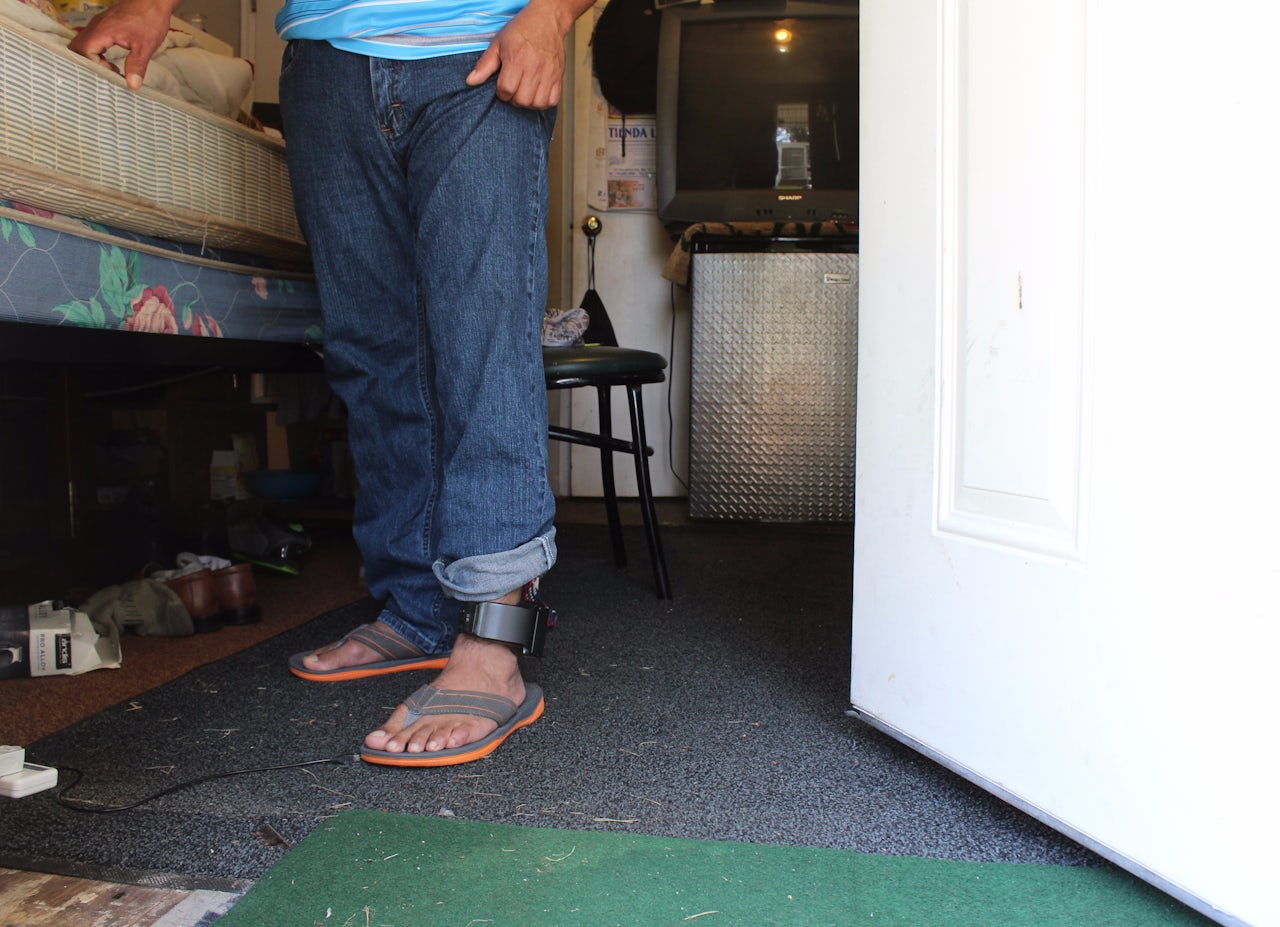Juan left Guatemala last year to escape devastating poverty. He lives in a one-room apartment with three people in LaGrange, Georgia and scrapes by with an under-the-table job. But since he got caught at the border coming in, he must travel to Atlanta twice a month to check in with Immigration and Customs Enforcement (ICE). He also has to wear an ankle monitor 24/7.
This segment appeared on our daily podcast, The Outline World Dispatch. Subscribe on Apple Podcasts or wherever you listen.
“I’m not free to work, and I’m always walking, and the monitor is always on,” he told The Outline. “So all I have to do is wait.”
He’s been waiting for a year.
Tens of thousands of people in the U.S. wear ankle monitors, almost all of which are provided by private probation companies.
Many are being monitored because of a misdemeanor sentence from a criminal court, but the federal government is actually the single biggest customer for privatized electronic monitoring services. That’s because of the large and growing number of immigrants who are being detained outside of a detention center.
ICE uses ankle monitors to keep an eye on undocumented immigrants the agency has detained, and then released pending a deportation hearing.
On a single day in late 2016, which was the last time ICE provided specific numbers for this metric, there were almost 30,000 people on electronic supervision, three times the number ICE gave for 2014.
The big winners are companies like BI Inc., which makes these devices. It’s hard to pin down exactly how much these companies are making off private probation work, but in 2010, BI was bought by The Geo Group, a Florida-based provider of corrections and detention services, for $415 million. The acquisition was expected to add $115 million in revenue in its first year, Geo Group said at the time. Geo Group has seen its stock go up almost 70 percent since President Donald Trump’s election.
